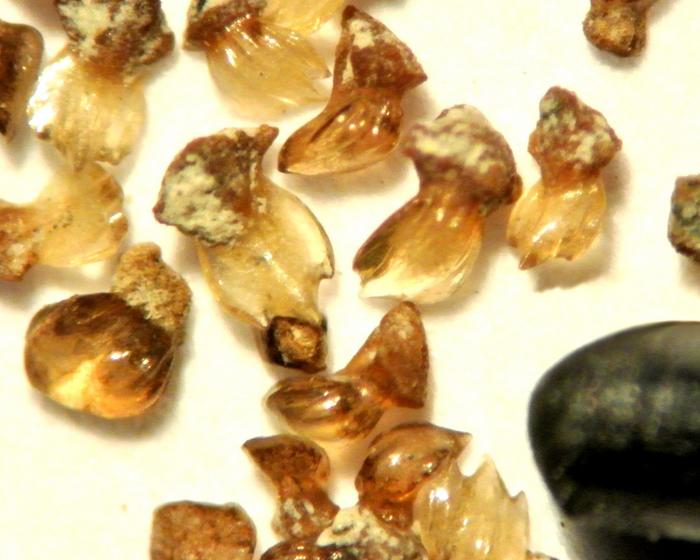A new study reveals the iconic extinct Megalodon, or ‘megatooth shark’, was a rather slow cruiser that used its warm-bloodedness to facilitate digestion and absorption of nutrients.

Credit: DePaul University/Kenshu Shimada
A new study reveals the iconic extinct Megalodon, or ‘megatooth shark’, was a rather slow cruiser that used its warm-bloodedness to facilitate digestion and absorption of nutrients.
DePaul University paleobiology professor Kenshu Shimada and coauthors propose radically new interpretations of the lifestyle and biology of Otodus megalodon, the fossil shark that lived nearly worldwide roughly 15 to 3.6 million years ago.
The new study, which overturns conventional wisdom about the swimming speed of Megalodon, appears in the international scientific journal Historical Biology.
Otodus megalodon is commonly portrayed as a gigantic, monstrous shark in novels and films, such as the 2018 sci-fi thriller “The Meg” and the upcoming “Meg 2.” Although the species was indeed quite gigantic, the maximum possible length is thought to be about 65 feet (20 meters).
The new study is based on the discovery of tiny scales, more precisely called ‘placoid scales,’ of O. megalodon within rock pieces surrounding a previously described tooth set of the fossil shark from Japan.
“Our big scientific findings come from ‘tiny evidence’ as small as grains of sand,” says Professor Shimada.
The biology of O. megalodon was previously based largely on its gigantic teeth and vertebrae.
Inferred to be partially warm-blooded or regionally endothermic — similar to large active modern predacious sharks like the makos and great white sharks — O. megalodon was traditionally assumed to be an active fast swimming shark. However, the new study reveals that its tiny placoid scales are not equipped with narrowly-spaced ridges or ‘keels’ characteristic of fast-swimming sharks. “This led my research team to consider O. megalodon to be an ‘average swimmer’ with occasional bursts of faster swimming for prey capture,” described Shimada.
The new study also leads to a new paradox. Although strong support for the presence of regional endothermy in O. megalodon exists based on another recent study in which Shimada also played a key role, the question was how the fossil shark expended the high level of metabolic heat resulting from its warm-bloodedness without being an active swimmer.
Upon reviewing the literature, the research team noticed another possible function of endothermic body physiology that had been neglected in the biological context of O. megalodon — i.e., facilitating digestion as well as absorbing and processing nutrients. “It suddenly made perfect sense,” said Shimada. “Otodus megalodon must have swallowed large pieces of food, so it is quite possible that the fossil shark achieved the gigantism to invest its endothermic metabolism to promote visceral food processing.”
Journal
Historical Biology
DOI
10.1080/08912963.2023.2211597
Article Title
Tessellated calcified cartilage and placoid scales of the Neogene megatooth shark, Otodus megalodon (Lamniformes: Otodontidae), offer new insights into its biology and the evolution of regional endothermy and gigantism in the otodontid clade
Article Publication Date
23-Jun-2023




